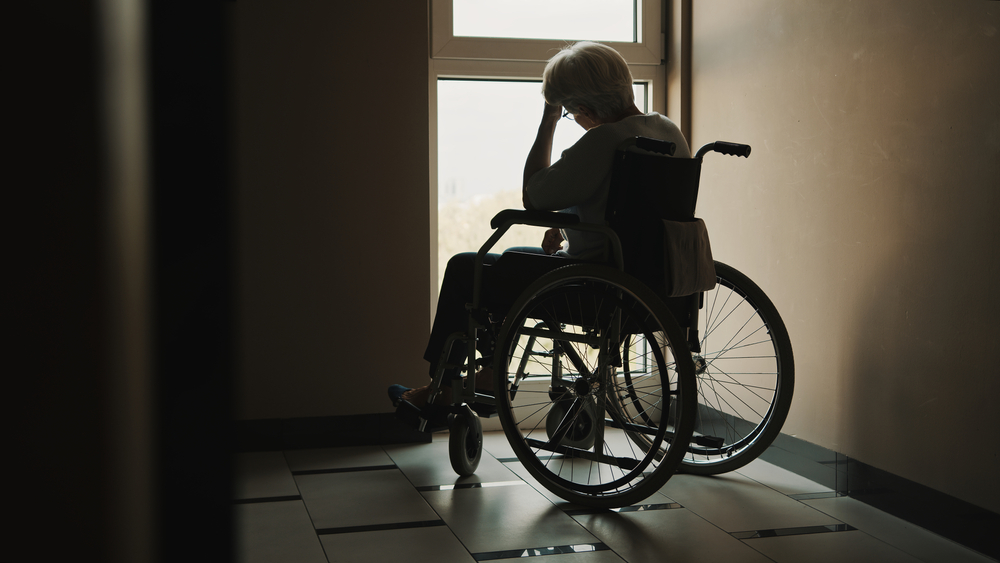Sexual abuse can happen to anyone of any age, but unfortunately, it has become a serious problem for those over the age of 65.
This may seem odd, but this is primarily due to the pressures of elder care. Taking care of an elderly family member or patient (such as in a nursing home) is not an easy job. While sexual abuse of the elderly can happen in any environment, it is especially prevalent in nursing homes, where staff are overworked and underpaid.
It is important to understand what sexual abuse is and how families can deal with the aftermath if it happens to their loved one. Sexual abuse is defined as “nonconsenting sexual contact of any kind.” The definition of sexual abuse includes unwanted touching as well as all types of sexual assault or battery, such as rape, sodomy, and coerced nudity. Even sexually explicit photographing can be considered to be sexual abuse, and this is something that has happened a lot in recent years, thanks to the rise in social media use and content creation.
When sexual abuse does happen, it is considered to be the most hidden form of elder abuse. Statistics show that 18% of women who are raped are over the age of 60. Residents in nursing homes are particularly vulnerable because they are more or less dependent on their caregivers owing to chronic illnesses, especially those with cognitive and behavioral problems. In fact, 70% of sexual abuse cases among the elderly happen in nursing homes.
Any nursing home patient can be a victim of sexual abuse. However, perpetrators tend to focus on victims who have some sort of physical or mental disabilities, as they are least likely to report the abuse. Common examples of victim risk factors include:
Functional disability
High dependence on care.
Mental health problems.
Cognitive defects.
Limited social support.
Prior trauma.
Poor relationship with the perpetrator.
If your loved one is in a nursing home, you may be concerned about the possibility of sexual abuse. Here are the signs to look for and how you can effectively address them so abuse does not continue.
Signs of Sexual Abuse in Nursing Homes
Sexual abuse is not always apparent. Older adults can hide abuse well due to their cognitive condition, emotional state, and social awareness. Many victims refuse to communicate about it, and they refuse to report it out of fear. If you have an older family member in a nursing home, it is important to pay attention to the warning signs of sexual abuse. These signs include the following:
Unexplained bruising around breasts, thighs, or genitals
Pain, bleeding, or irritation in the genital or anal area
Torn, stained, or bloody undergarments
Difficulty walking or sitting
Sexually transmitted infections
Sudden withdrawal or fearfulness, especially around specific people
Anxiety, depression, or mood swings
Reluctance to be touched or examined
Trauma responses such as rocking, mumbling, or sucking their thumb
A caregiver’s refusal to leave the elder alone with others
A history of the caregiver’s abusive behavior
Isolation from friends, family, or social activities
Sudden changes in financial or legal documents
Sexual abuse can also lead to long-term effects such as:
Post-traumatic stress disorder (PTSD)
Sleep disturbances
Changes in self-image
Anxiety
Depression
Increased hospitalizations
Overall poor health
Feelings of shame and guilt
Your family member will likely have a tough time coping with what happened. Still, they may be hesitant to speak about the abuse. Take note of any changes in mood or behavior when you visit your relative. They may need you to be their voice.
Addressing Sexual Abuse in Nursing Homes
If you have reason to believe that your family member was abused while in a nursing home, you need to take quick action to protect your loved one and seek justice. Here are the steps to take:
Ensure immediate safety. Remove your loved one from the facility if they are in immediate danger. Seek medical attention right away to address any physical injuries and preserve forensic evidence.
Document everything. Take notes on what was observed, including physical signs, behavioral changes, and statements. Save clothing, bedding, or other potential evidence without washing or altering it. Keep a detailed log of conversations with staff or administrators.
Report the abuse. Start by notifying the nursing home of the abuse. Hopefully, the facility will take action against the perpetrator and provide access to recovery resources for your loved one. Unfortunately, though, this is the least likely outcome. More often than not, complaints are ignored, and nothing is done. You should also contact local law enforcement to file a criminal report. It is also a good idea to file a complaint with Adult Protective Services (APS) and the nursing home regulatory agency so they can investigate.
Seek legal help. Speak with a personal injury attorney experienced in elder abuse or nursing home cases. They can guide you on legal options such as a civil lawsuit for damages. They will work with the court system to ensure that the abuse stops and your loved one is protected.
Support your loved one. Suffering sexual abuse is a serious issue. Be available to support your family member. Arrange counseling or therapy from professionals trained in trauma or elder abuse. Reassure your family member throughout the process.
Contact Newman Law Group Today
Nursing home abuse can be perpetrated by staff members as well as other residents. When sexual abuse happens to a loved one, it can be a frustrating and scary experience.
Count on a Sacramento sexual elder abuse attorney from Newman Law Group, LLP, to guide you through this difficult time. With a decade of experience in the field, we are more than capable of handling any elder abuse or nursing home abuse case you may be facing. Find out for yourself by scheduling a consultation today. Fill out the online form or call (916) 352-3181.





